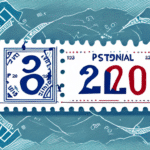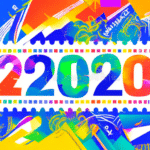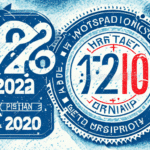Understanding the Cost of Stamps in 2023
Stamps have been a cornerstone of communication for centuries, symbolizing the connection between people worldwide. The cost of postage is influenced by various factors, and with technological advancements, it's essential to explore what the cost of a stamp is expected to be in 2023.
Key Factors Influencing Stamp Prices
Weight and Size of Mail
The primary determinants of stamp cost are the weight and size of the mail item. Heavier and larger items require higher postage fees.
Delivery Speed and Service Type
Different postal services offer varying delivery speeds. Services like Priority Mail or Express Mail typically cost more than standard First-Class Mail.
Shape and Dimensions
Non-standard shapes, such as square envelopes, may incur additional postage costs compared to traditional rectangular mail items.
Geographical Distance
The distance a mail item travels can also impact the cost. International shipments generally require more postage than domestic ones.
Historical Trends and Inflation Impact
Rising Stamp Prices Over Decades
Stamp prices have consistently increased over the years. For instance, the cost of a stamp in 1970 was just a few cents, whereas in recent years, it has risen to approximately 58 cents. [Source: USPS Historical Data]
Inflation and Operational Costs
Inflation plays a significant role in the rising cost of stamps. As the cost of living increases, the postal service adjusts stamp prices to cover operational expenses such as labor, transportation, and materials.
Comparative Analysis with Other Postal Services
Global Stamp Pricing
When compared internationally, the cost of stamps can vary significantly. For example, a stamp in the United Kingdom (Royal Mail) might be priced differently due to the country's economic conditions and postal policies.
Private Courier Services vs. Postal Services
Private couriers like FedEx and UPS often offer faster delivery times and advanced tracking options, but at a higher cost compared to traditional postal services.
Technological Advancements and Their Impact
Automation and Efficiency
Advancements in automation have streamlined postal operations, allowing for more efficient sorting and processing of mail. This has the potential to reduce costs, although other factors like fuel prices and maintenance can offset these savings.
Digital Communication's Role
The rise of digital communication methods, such as email and instant messaging, has decreased the demand for traditional mail services. This shift may necessitate higher stamp prices to sustain postal service revenues.
Future Predictions for Stamp Prices
Expected Price Increases
Based on current trends, stamp prices are anticipated to continue rising. Projections suggest that the cost may reach approximately 60 cents or higher in 2023, considering inflation and operational costs.
Impact of Reduced Mail Volume
With declining mail volumes, postal services might increase stamp prices to compensate for reduced revenue. This change ensures the sustainability of postal operations amid shifting communication preferences.
Strategies to Save on Postage
Purchasing Forever Stamps
Forever Stamps allow consumers to buy postage at the current rate, which can be used indefinitely, protecting against future price hikes.
Bulk Mailing Discounts
Businesses and individuals can take advantage of bulk mailing discounts to reduce the overall cost of postage. This strategy is particularly beneficial for high-volume mailers.
Utilizing Digital Alternatives
Embracing digital communication platforms can significantly cut down on postage expenses by reducing the need for physical mail.
Conclusion
While it's challenging to predict the exact cost of a stamp in 2023, factors such as inflation, operational costs, and technological changes suggest a continued upward trend in stamp prices. By understanding these factors and employing strategies to mitigate costs, individuals and businesses can effectively manage their postage expenses in the evolving landscape of communication.




















